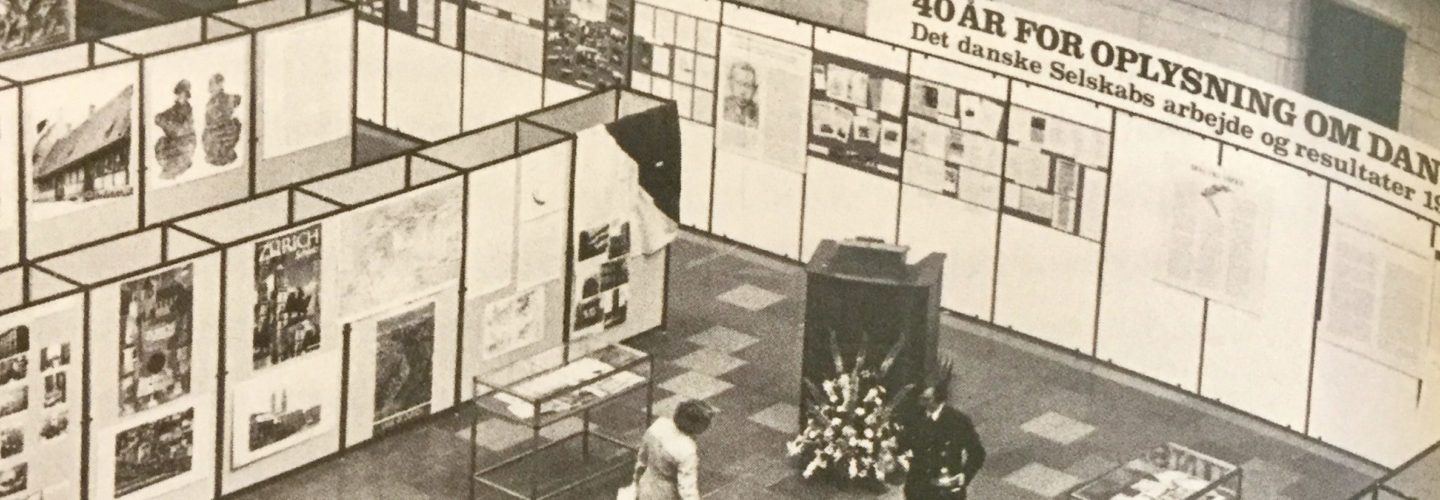
History
The History of Danish Cultural Institute
Danish Cultural Institute was founded in 1940 at the initiative of a group of 34 outstanding Danish personalities from the world of culture, business, education and science. The Institute emanated as a counter-reaction to the dominating political environment in Europe in the 1930s and is based on the beliefs that collaboration, mutual understanding and cultural dialogue are of outmost importance and can arise from cultural engagement and exchange.
In the beginning founder Folmer Wisti named the institute ‘The Danish Society’. The aim was – the same as today – to encourage international understanding through exchange of cultural values, ideas and experiences and also to inform the world about Denmark. The first international branches were established in Poland and the UK in 1947 and in 1989 the name was changed to the Danish Cultural Institute.
From the very beginning, the organization has prioritized to be locally present at various international locations.
At the moment Danish Cultural Institute is active in the following countries:
Brazil (São Paulo)
China (Beijing). Does also do activities in South Korea
Estonia, Latvia and Lithuania (Riga)
India (New Delhi) – for now all activities will be handled from Copenhagen
Ukraine (Kyiv) – via The Ukrainian-Danish Youth House
The Eastern Neighbourhood Countries – via The New Democracy Fund
Headquarter in Copenhagen
At the beginning Det Danske Selskab had one main goal: to cherish and cultivate Danish cultural organizations, work on informing the world around us – and most importantly, station representatives around the world.
The invasion by Germany in 1940 did not make at easy for DDS to realize the vision. Instead, the organization started the project called “Danmarks Kultur ved Aar 1940”. It was eight richly illustrated volumes, which were released from 1941 – 43. The focus of the project was Danish culture – including history, art, politics, and Danish society. The initial considerations of the project were writing by physicist Niels Bohr.
International breakthrough
Despite the German invasion the early vison of Det Dansk Selskab: to station people who could inform about Denmark and lead cultural dialogue was not lost.
In 1947 DDS got admitted to the financial act which created economic basis for the stationing of delegates to several European cities. Supplementary subsidies came from municipalities, banks, and companies.
The first five delegates became Vagn Hauch Fenger to Birmingham, Erling Norlev to Glasgow, Carl Chr. Petersen to Prague, Tove Galatius to Amsterdam and Finn Riber Jensen to Zürich.
In 1948 the organization branched out to three more cities: Rome, Chicago, and Brussels. Some of the representatives had academic background, others had journalistic experience – all had practical experience with education and dissemination.
For Folmer Wisti the statement: “what can we learn form each other?” was crucial and it became the mantra for the organization the following years – and still is to this day.
Danish Cultural Institute today
Since 1940 our vision has changed. The main goal for Det Danske Selskab was to cherish and promote Danish culture where today we work towards creating new perspectives and connections and strengthen dialogue together with our partners around the world through art and culture. All in the belief that we do better work together.
You can read more about our projects here.